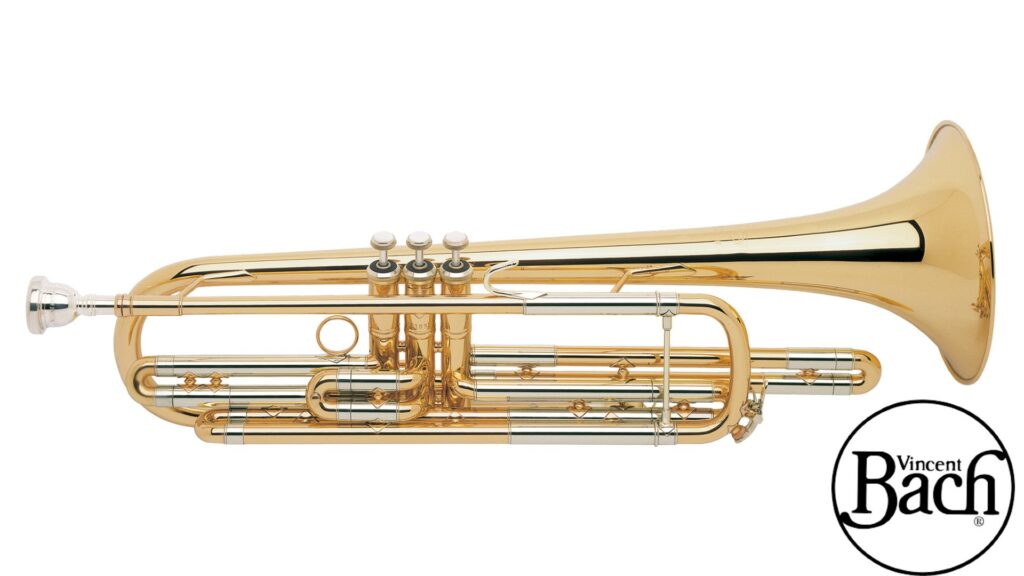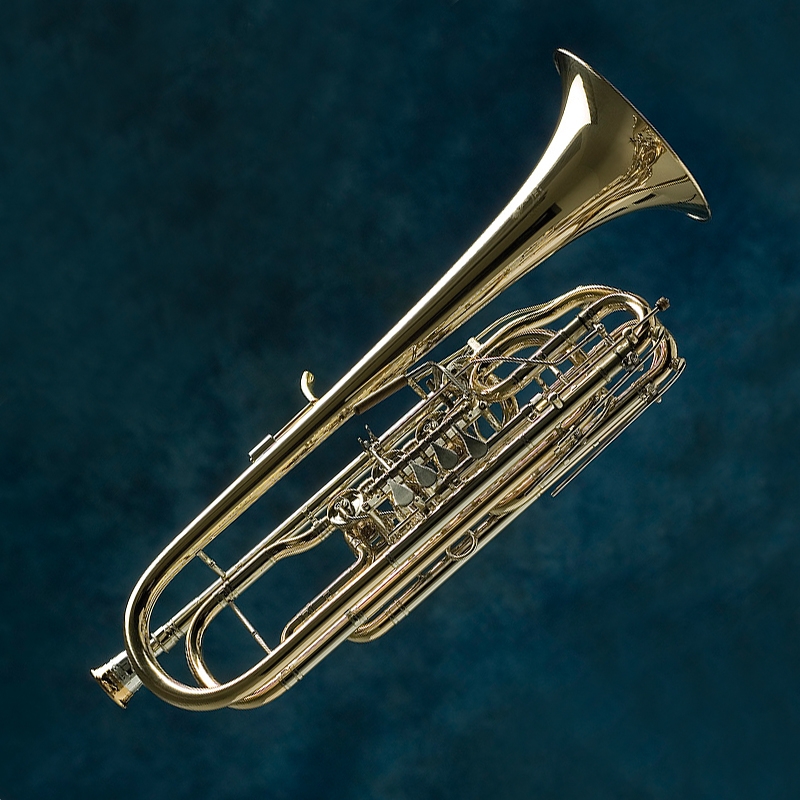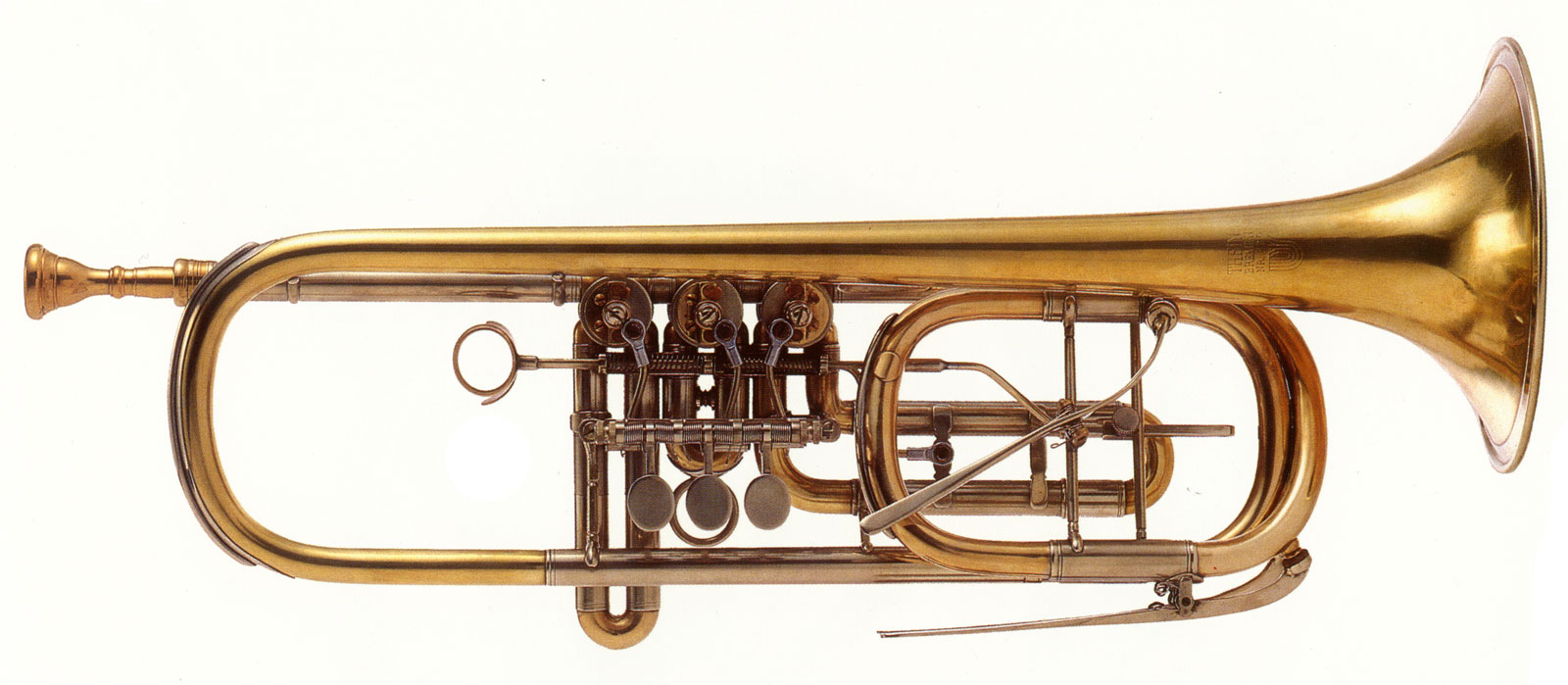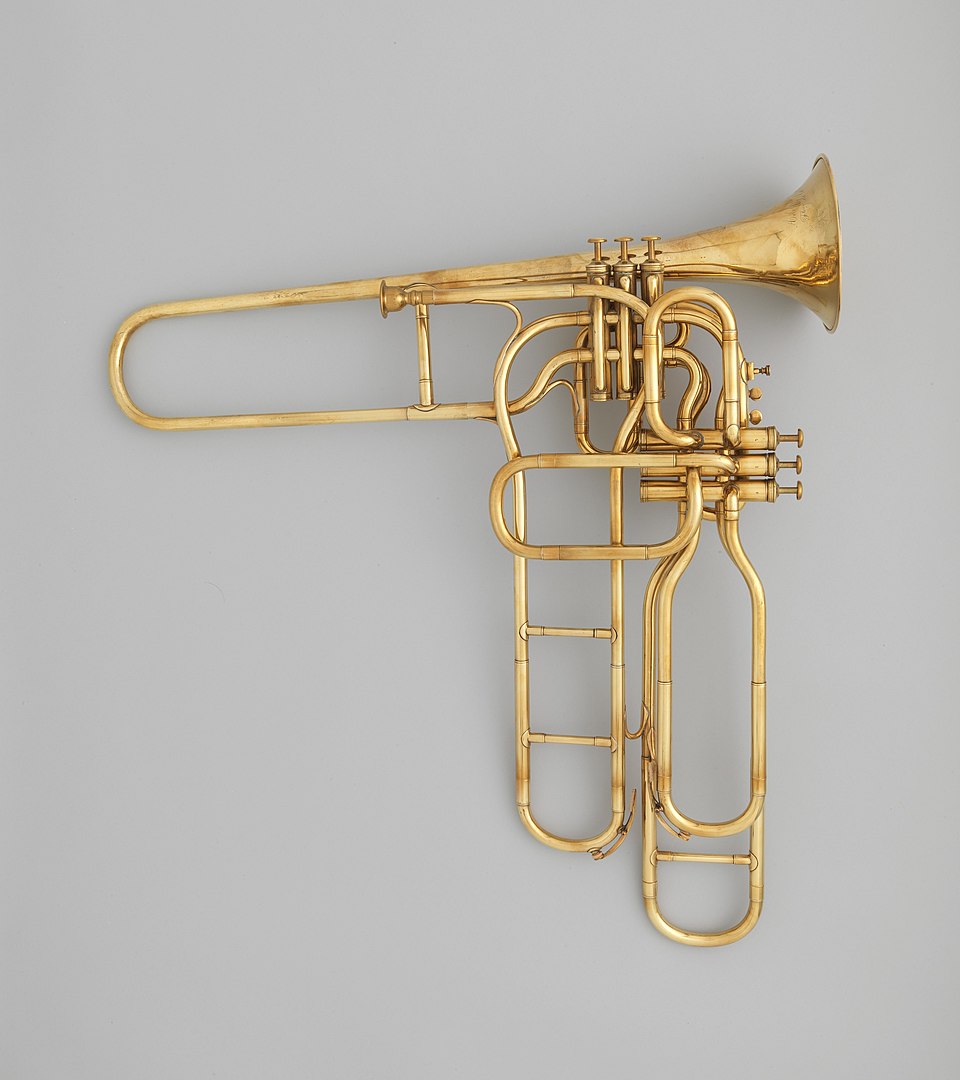- Euphonium vs Baritone Compared - September 5, 2022
- How to Find the Best Contra Alto Clarinet - August 20, 2022
- Mellophone vs Trumpet Compared - August 6, 2022
You love the sound of a bass trumpet, and you’re thinking about adding one to your collection. But there’s not a lot of information out there about bass trumpets. You don’t know where to start your search or how much you can expect to spend.
While there are some very reasonably priced bass trumpets available today, bass trumpets don’t come cheap. You want to think long and hard before you spend thousands of dollars on a secondary instrument. To help you, we’ve compiled a list of some of the best bass trumpets available.
Decision-Making Tips
It is tempting to think of the bass trumpet as a bigger, deeper trumpet. But the bass trumpet is a very different instrument than its smaller cousin. A quality bass trumpet is a serious investment. A cheap imported bass trumpet will be a waste of your time and money. Before you spend several thousand dollars on your instrument, you may want to ask yourself some questions.
Do You Want Piston or Rotary Valves?
Piston valves open and close lengths of tubing and are used on most brass instruments in jazz, symphonic, and marching music. Rotary valves are used on French horns. Where pistons go up and down, rotary valves turn 90º when the player pushes the key. As they turn they open a tube, changing the air column’s length. You have been playing with piston valves if you are coming to bass trumpet from the standard B♭ trumpet.
The bass trumpet appears in Wagner’s Ring cycle and is also featured in Stravinsky’s Rites of Spring and Schoenberg’s Guerre-Lieder. But these composers wrote for rotary bass trumpets. So did other Austrian, German, and Eastern European composers. In fact, nearly all the classical bass trumpet repertoire was written for rotary instruments.
Rotary valves produce a more mellow and blended tone than the forward-sounding piston trumpet, and rotary trumpets blow less freely. You hold a rotary trumpet sideways like a sandwich and press the keys in a different angle and position than a piston trumpet. It is harder to do half-steps on a rotary valve instrument, and the key action is stiffer. But once mastered, a rotary instrument can play more precise fast passages than a piston trumpet.
If you are going to be doing symphonic work, you may want to invest in a rotary bass trumpet. Most jazz and pop musicians use the piston bass trumpet.
Do You Have Experience Playing with Bigger Mouthpieces?
The bass trumpet’s mouthpiece is considerably larger than a standard trumpet and closer in size to a trombone mouthpiece. (This is not surprising, given that the bass trumpet’s range is almost identical to that of a tenor trombone). Trombone and euphonium players often have an easier time than trumpeters mastering the embouchure and breathing required for a bass trumpet.
A larger mouthpiece will tax your endurance at first, and you will struggle with the intonation and with the bass trumpet’s higher registers. It will take some time to adjust to the different feel and demands, but as you continue switching between your instruments, you will find your skill improving with both instruments.
In What Key do you Want your Bass Trumpet?
The B♭ bass trumpet is most commonly used by jazz musicians, but many symphonic works (notably Wagner’s) are written for bass trumpets in C. A B♭ bass trumpet player can always transpose music written for a C trumpet up a step, but that adds complication and is frowned upon by many period instrument purists.
Stravinsky’s Rites of Spring calls for an E♭ bass trumpet pitched a sixth below the standard trumpet. While many orchestras use a B♭ or C bass trumpet for the role, E♭ bass trumpets are available and preferred by many musicians who feel the tone of the smaller E♭ bass trumpet works better with Stravinsky’s orchestration.
Bass Trumpet Brands
Here are some of the best bass trumpets available today in various configurations, arranged by maker in alphabetical order.
Bach B188 Stradivarius B♭ Bass Trumpet

Bach’s Stradivarius line of trumpets are world-renowned for their quality, and Bach’s B188 Stradivarius bass trumpet is no exception. The B188 is particularly beloved by jazz and pop musicians, most notably Rashawn Ross of the Dave Matthews Band. The B188 has the same warm intonation and responsive play as the smaller Stradivarius trumpets. The bright edge sets the bass trumpet’s sound apart from the tenor trombone.
Bach Stradivarius trumpets receive high marks from trumpeters for their ease of play, and the B188 is no exception. While lesser bass trumpets can have poor slotting and intonation, the B188 will give you a powerful and penetrating tone through every register. And while trumpet players will still need to get used to the larger mouthpiece and greater air demands, the B188 will feel familiar to a trumpeter accustomed to smaller Strads.
The B188 may be more popular with jazz musicians, but it is also found in many orchestra pits. A piston bass trumpet works perfectly well for 19th-century French works. While it may not be precisely what Mahler or Wagner had in mind, the B188 will handle the orchestral repertoire just fine.
Pros
- Easiest-playing bass trumpet on the market
- Popular with jazz and classical musicians
- Repairmen around the world are familiar with Bach trumpets
Cons
- Expensive
- Not period-authentic for 19th century German and Austrian music
Specifications
- Key: Bb
- Bore: .485″ (12.3 mm)
- Leadpipe: Standard
- Leadpipe Material: Yellow brass
- Bell: 7″ one-piece, hand-hammered
- Bell Material: Yellow brass
- Valves: Monel
- 1st Valve Slide Adjustment: Fixed ring
- 3rd Valve Slide Adjustment: n/a
- Case: Wood shell case
- Mouthpiece: Bach 12C small shank trombone mouthpiece
- Finish: Lacquer
Lätzsch BTR-1000C Bass Trumpet

If you want a bass trumpet worthy of a Wagner performance, you need to consider the Lätzsch BTR-1000c. Lätzsch’s rotary valves have a carbon-fiber core, making them more durable than many notoriously fussy rotary designs. But while their valve material is modern, Lätzsch’s bass trumpet is all classical German instrument styling otherwise.
Lätzsch is one of Germany’s most famous brass instrument makers and is especially well-known for its trombones. They have a mixed reputation in America, thanks largely to piston trumpet players who discovered that rotary instruments are a very different beast. If you switch to a rotary instrument, expect a learning curve and hours of frustration until you master your new trumpet. But when you do, you’ll be making some of the most beautiful music ever to come out of a horn.
Lätzsch quality comes at a price: the BTR-1000c will set you back a bit over $10,000. But an advanced bass trumpet player with solid technique and breathing, the BTR-1000c may be the finest bass trumpet available today.
Pros
- Solidly engineered
- One of the most reliable valved instruments on the market
- Simply a classic symphonic bass trumpet
Cons
- Difficult to play requires top-notch technique
- Very Expensive
Specifications
- Key: C (also available in B♭)
- Valves: 4 rotary valves
- Bore: 12,0 mm / 0,473”
- Material: Gold Brass
- Finish: Lacquered
- Includes exclusive Lätzsch case
Thein Low F Trumpet

Before the late 19th century, most trumpets were tuned in a low F, a full fourth below today’s B♭ trumpet. Many Romantic compositions feature 2nd and 3rd trumpet parts that require lipping and tuning slide adjustments on a standard trumpet. Thein’s Low F Trumpet makes playing those parts a whole lot easier. The “bass trumpet” line in Stravinsky’s Rite of Spring and many trumpet parts by Elgar, Mahler, and others were actually written for low F trumpets.
Thein makes low F trumpets with rotary valves (preferred in Germany and Austria) and piston valves (standard in French romantic music). And when you need those extra high notes, Thein’s optional B♭-set tubing transforms your low F trumpet into a standard B♭ trumpet.
Thein brass instruments are found in many top-ranked symphonies, and the Thein brothers are widely respected as among the world’s leading instrument designers. The low F trumpet is priced comparably to the Lätzsch bass trumpet, which is to say it is expensive. But given its versatility, the Thein Low F trumpet will serve you in many musical settings.
Pros
- Most versatile trumpet on our list
- Built by one of the world’s leading suppliers of brass orchestral instruments
- Period-authentic for most 19th-century music
Cons
- Less low range than any other trumpet on our list
- An heirloom trumpet, but priced accordingly.
Specifications:
- Bell diameter: 135 mm
- Bell rim: French rim
- Bore: 11,50 mm
- Wall thickness: 0,45 mm
- Material: yellow brass
- Finish: lacquered, silver plated
- Mouthpiece recommendation: THEIN 1½C
My Recommendations
For serious jazz musicians, the best bass trumpet will be the Bach Stradivarius B188. The B188 is as close as you will get to a bass trumpet that plays like a Stradivarius and will serve you well through a lifetime of gigs.
If you want a bass trumpet for symphonic and orchestral music, the Lätzsch BTR-1000c is your best bet. Mastering your new instrument will take some time. Still, your efforts will be lavishly rewarded with one of the finest-sounding bass trumpets available today.
If you are a trumpet player who just wants a little more oomph in your low end, the Thein Low F Trumpet will give you an extra fourth on the bottom and a period-accurate horn for 19th-century music.
Alternatives

If you are a trumpet player who loves the sound of a bass trumpet, you may want to check out a tenor valve trombone. Valve trombones use the same fingerings as trumpets. But although valve trombones are pitched in B♭ like trumpets, trombones are non-transposing instruments. This means you will have to move your fingerings up a step. You will also have to learn how to read the bass clef, which is typically used for trombone music.
A valve trombone has the same range as a bass trumpet and a very similar sound. However, many find the bass trumpet more penetrating and the valve trombone stronger in the lowest register. And while valve trombones are relatively uncommon, there is far more music available for valve trombone than for bass trumpet.
If you are thinking about moving from a piston trumpet to a rotary bass trumpet, you may want to pick up a regular rotary trumpet first. Many Romantic composers wrote for rotary trumpets, and a growing number of jazz musicians have taken advantage of the rotary trumpet’s warm glowing tone and nimble fingering capabilities.
A regular rotary trumpet will give you a chance to master the different grip and breathing techniques required for rotary brass instruments and broaden your musical palate and career opportunities.
Frequently Asked Questions (FAQ)
Answer: The B♭ bass trumpet has a range between E2 – C5, an octave lower than the B♭. The C trumpet has a natural range of F#2 – D5, and the low F trumpet has a range between B♭3 and F5. Mastering the bass trumpet’s notoriously stuffy lowest register requires a great deal of breathwork and practice.
Answer: Music for the B♭ bass trumpet is written an octave and a step above the note played. When B♭ transposing instruments play a written C, they produce a B♭, a full step below the score. Bass trumpet music is also written in treble clef. The written score for a bass trumpet comes out a full octave lower when played on a C bass trumpet and a full ninth lower on a B♭ bass trumpet.
The C bass trumpet is in the key of C, and so no transposition is necessary – unless, as is often the case, the score was written for a B♭ bass trumpet! In practice, symphonic brass players must get accustomed to sight-transposing music written for horns in different keys.
Answer: While the bass trumpet uses the same fingerings as a regular trumpet, it is considerably more difficult to play. The bass trumpet’s bore is more narrow than a tenor trombone, but the musician must send air through the same length of tubing. And the bass trumpet’s larger mouthpiece will be challenging for somebody moving from a trumpet. Most orchestras assign the bass trumpet to a trombone player in pieces calling for a bass trumpet.
Conclusion
Ultimately, the best bass trumpet is the one that plays best for you. Before spending a lot of money on a bass trumpet, try out some different models. You will discover each one has some features you like and some you find problematic. Weigh those pros and cons and decide for yourself which is best for you.
Looking for more interesting readings? Check out:



